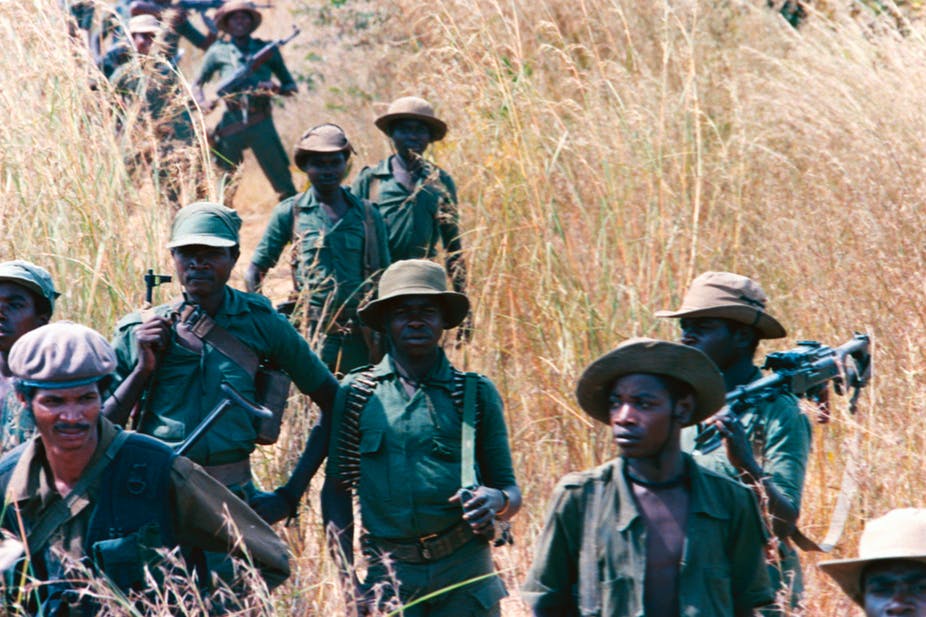In recent days, one has watched the news to see South African youth rampaging and looting businesses belonging to Africans from other places like Nigeria, Tanzania, Zambia and Kenya. In some gory videos, I was shocked to see the body of a young African man being burnt beyond recognitions as the young South African men jeered around him.
I have hesitated to say anything about this situation which has rapidly spread to other countries, like Nigeria and Zambia as youth there loot and rampage South African businesses.
But how can this be? What is the real cause of the chaos? The South African Institute for Race Relations argues that “what is at play is a toxic brew of frustration caused by unmet socio-economic aspirations, rising unemployment, grinding poverty and failing service provision.”
If this is the case, we must look into history a bit.
In 1974, a Regional Director of Bantu Education, JG Erasmus, decreed that all black students in South Africa shall be taught in Afrikaans and English. His thinking of that time was no new. 20 years before, in 1955, the then Minister for Native Affairs, Dr Hendrik Verwoerd had this to say:
“There is no place for [the Bantu] in the European community above the level of certain forms of labour … What is the use of teaching the Bantu child mathematics when it cannot use it in practice? That is quite absurd. Education must train people in accordance with their opportunities in life, according to the sphere in which they live.
The decree was resented deeply by the black populace. Desmond Tutu, then bishop of Lesotho stated that Afrikaans was “the language of the oppressor”. Teacher organisations, such as the African Teachers Association of South Africa, objected to the decree because the change in language of instruction forced the students to focus on understanding the language instead of the subject material. This made critical analysis of the content difficult and discouraged critical thinking.
This resentment boiled over in June 1976 when black students poured out into Soweto streets on what was planned to be a peaceful protest against having to learn in Afrikaans. “If we must learn in Afrikaans,” chanted the teenagers, “then Vorster must do Zulu.” John Vorster was the Prime Minister of South Africa at the time.
The peaceful protest took a turn when the police set the dog on the protestors, who promptly killed it. The police then shot indiscriminately at the children, leaving 176 dead on that day and many more thereafter.
What was originally an education protest became a national protest against Apartheid.
This national protest saw an militant organisation called the Azanian People’s Liberation Army (ALPA), which transported children as young as 11 to Tanzania, Uganda, Zambia and other countries to be trained to go back and fight for South African people.

These children back in the 80s, are now adults and most are reported to be unemployed and facing severe poverty. A few South African friends have told me that while the rest of the world looks at Mandela with Admiration, they saw him as a sell-out. Mandela and his party, the African National Congress (ANC) promised 71,000 freedom fighters (who are registered in the department of Military Veterans database) financial and housing aid. These are 71, 000 families who are desperate for a viable living. 71,000 people who have been left behind by the dream of a new South Africa. My friends say that South Africa only rebranded but did not become new.
Add this to the rest of Africa’s youth, the 77 percent, and you realise that we have a problem.
In response, the ECOWAS President, Jean Kasi-Brou, said ”Any issue can be resolved through dialogue, cooperation, discussions as long as it is positive and constructive which is important in the situation because African nations are not only working on the regional but also the continental level under the African Union umbrella for the full integration of the regions of the continent.”
Unsurprisingly, his clearly tone-deaf call for dialogue seems to fall on deaf years, because, well, who is he talking to? A young lad fed up with the hard life he has had to live? Dialogue with who?
Julius Malema was more on the money when he said, “Xenophobic violence will never resolve the problems our country face because they were never caused by foreign nationals in the first place,” adding “We come from a traumatic past and we are still struggling to find ourselves. We will soon realise, we are nothing without this continent.”
As we look at the xenophobia, we have to begin to realise, this is not about businesses from other countries, really. This is a continued search for freedom – economic freeedom. And this search is being conducted by 77% of Africa’s population – everywhere.